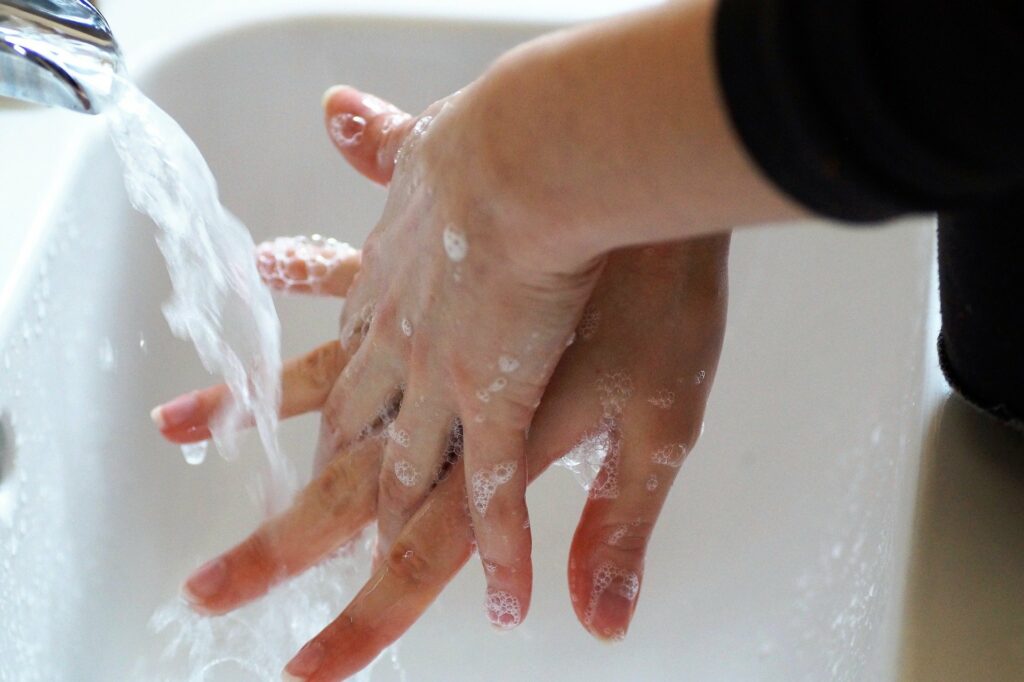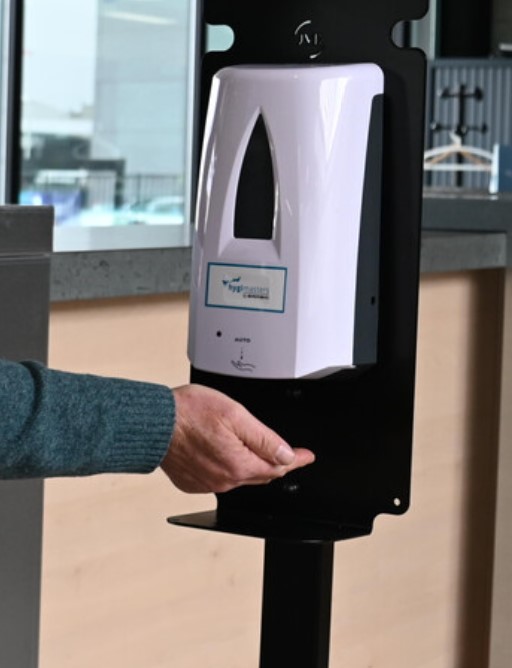Good hand hygiene and washing your hands frequently: it seems self-evident. Certainly since the corona pandemic. Everyone seems to realise that frequent hand washing is a good way to prevent the spread of bacteria and viruses. But does this awareness also translate into practice? The International Hand Hygiene Day is a good opportunity to reflect on this.
Attention to hand hygiene and washing hands is of all times. In almost all religions, washing hands has been part of daily rituals for thousands of years. And in the 19th century, health experts linked better hand hygiene to fewer infections.

Hand hygiene before the corona pandemic
Yet hand washing is not yet well established in our daily habits. Numerous studies in different countries show that before the corona outbreak, 50 to 67% do not or not sufficiently (e.g. not long enough, no soap) wash their hands after visiting the toilet.
The outbreak of COVID-19 from March 2020 onwards puts hand hygiene in the spotlights. In addition to keeping a distance and wearing a mouth mask, thorough hand washing is one of the basic measures to prevent spreading.
Washing hands since corona
The importance of good hand hygiene is thus beyond dispute. But which measure proved most difficult to comply with when asked in Belgium and the Netherlands? Exactly, hand washing. A study in the United States confirms this findings.
Between April 27 and May 3, 2021 (during the pandemic though), the American company Puronics* questions more than 1,500 men and women about their hand hygiene habits.
The survey reveals some positive trends:
- The participants in the survey say they wash their hands an average of 9 times every day.
- More than half of the respondents do not open the bathroom door (directly) with their hands anymore. They use their elbow or a paper towel.
- Almost 4 in 10 do not touch the toilet seat.
- 59% flush the toilet without using their hands. They do this, for example, with their foot.
So much for the good news. The survey also reveals some worrying results. This is despite the fact that 90% of those surveyed call themselves “clean” or even “very clean” and 76% say that washing their hands is “very important”:
- 38% wash their hands for 15 seconds or less, whereas 20 seconds is considered necessary for proper washing.
- 51% of respondents say they do not always use soap.
- 12% admit to only “sometimes” or “rarely” washing their hands after going to the toilet.
- Only 42% always wash their hands before eating.
Hand hygiene and alternatives for hand washing
Hand washing is and remains the best way to prevent the spread of diseases through the hands. But if it appears that many people do not do this or do it insufficiently, there is a need for alternatives.

A worthy alternative is, for example, hand gel. During the COVID-19 pandemic, many companies made hand gel available to their staff and visitors. After the phasing out of the corona measures, it is striking that these hand gel dispensers, such as the White’Box of Hygi Masters, have become a permanent fixture in companies. Nowadays, you can quickly clean your hands wherever you go, even if soap and water are not available. So we can end this article on hand hygiene with a bit of good news after all.
(*) You can read all the results of the Puronics study via this link.
